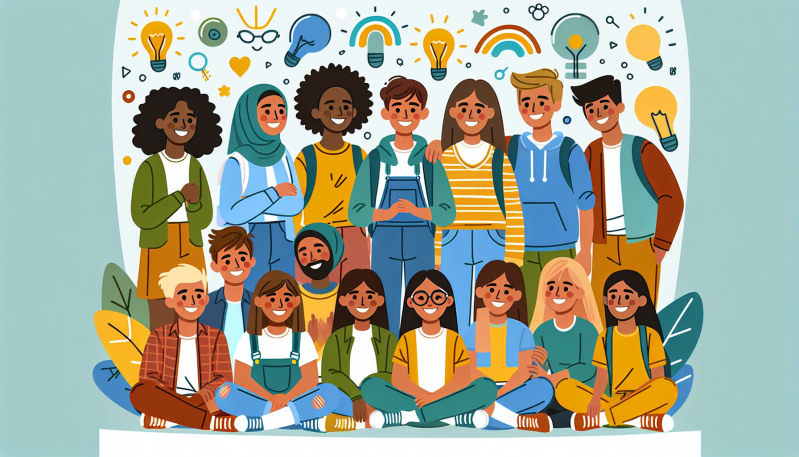In a world that often seems divided by differences and marred by mental health struggles, it’s more important than ever to focus on bridging the gaps between us—especially when it comes to our children. Our young ones face a multitude of challenges, from the complexities of growing up in a digital age to navigating social landscapes fraught with the pressures of conformity and bullying. As we mark another Friendship Week, it’s time we take a collective step forward in embracing mental health, kindness, loneliness, and diversity, equity, and inclusion (DEI) within the hallways and classrooms of our schools.
At FriendshipWeek, we believe that a child’s mental health is just as important as their physical health. Mental well-being provides the foundation for developing healthy relationships, making sound choices, and coping with life’s inevitable challenges. As educators, parents, and educational influencers, we are in a unique position to make a significant impact on the mental health of our students and children. By fostering an environment of understanding, empathy, and support, we can help build a more inclusive and nurturing school community.
Kindness is a powerful tool that can transform school culture. It’s a simple, yet profound act that encourages positive behavior, reduces the likelihood of bullying, and creates an atmosphere where students feel safe and valued. When children practice kindness, they learn to appreciate the diversity of their peers and develop social skills that will serve them for a lifetime.
Loneliness is an emotional state that many people experience but seldom discuss—especially young students. In a world where physical interaction is often replaced by digital communication, children may struggle to make meaningful connections. School initiatives focused on friendship and inclusivity can help mitigate feelings of loneliness by encouraging students to reach out, empathize, and connect with their peers on a deeper level.
Finally, DEI initiatives are critical in developing respectful, open-minded students who celebrate the unique differences between people. An inclusive school environment not only supports students from all backgrounds but also teaches them the importance of equality and fairness. By integrating DEI into our curricula and school culture, we can prepare our students to become global citizens who are capable of creating a more just and compassionate society.
So, how can we, as a school community, put these values into action? The answer lies in both big initiatives and small daily practices. From integrating mental health education into the curriculum to organizing kindness days and diversity workshops, there are countless ways to make a difference. But perhaps the most powerful tool at our disposal is the simple act of modeling the behavior we wish to see—showing empathy, promoting inclusivity, encouraging dialogue, and practicing kindness ourselves.
This Friendship Week, let’s commit to creating a ripple effect of positive change within our schools. Let’s share our stories of hope, challenge, and triumph in building more inclusive and mentally healthy environments for our children. And let’s invite others to join us in this mission by sharing their experiences and insights. Together, we can ensure that every student feels seen, heard, and supported—today, and for all the Friendship Weeks to come.


